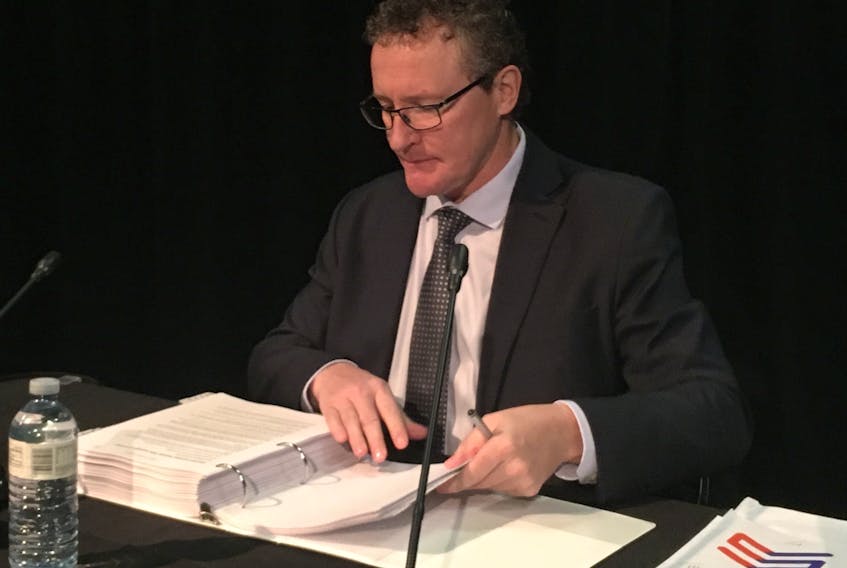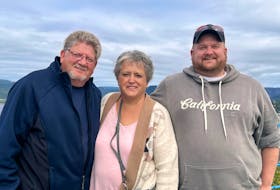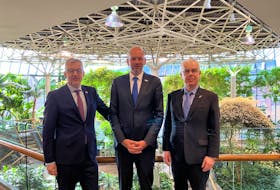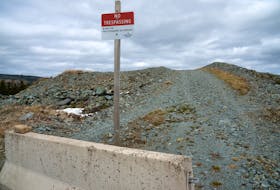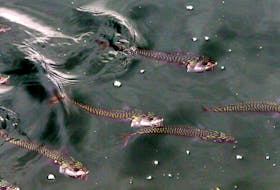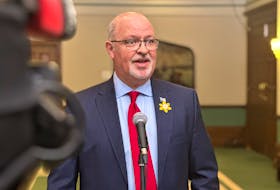HAPPY VALLEY-GOOSE BAY, N.L. — When Derrick Dalley became the minister responsible for natural resources in Newfoundland and Labrador in 2013, it was less than two months before the financial close on the Muskrat Falls project.
The province was about to lock in. Crown corporation Nalcor Energy was leading the construction project, and Dalley was the minister responsible for Nalcor.
At the Muskrat Falls Inquiry on Wednesday, he was asked by Inquiry co-counsel Barry Learmonth how he educated himself for his new role.
Dalley mentioned briefing books, in-person briefings and meetings with his deputy.
He never became involved in the federal loan guarantee negotiations for the Muskrat Falls project, he said.
And he said he wasn’t aware of anything along the lines of what Grant Thornton has reported to the inquiry — that at the time of financial close, Nalcor should have known the contingency amount included in the project budget was not enough, and that bids were coming in higher than expected (coming out at a 25 per cent overage).
“So at the time of financial close, you weren’t aware of these facts?” Learmonth asked.

“No, I was not,” Dalley said.
Dalley was asked about what details he was aware of and when. He was referred to a news report from The Telegram (by reporter James McLeod) addressing the fact Dalley had not sought a copy of an early report from the independent engineer who was working on behalf of the Government of Canada. The report, Learmonth noted, said the contingency for the project was at the “low end” and “aggressive.”
The suggestion was the minister might have dug more at the time of financial close, or insisted on greater oversight of Nalcor’s work earlier if he had seen it, even as an “interim” report.
“It may have led to some more questions. … It may have,” Dalley said. “I couldn’t say for sure.”
At one point, Dalley was referred to an email in evidence. Learmonth said it appeared Nalcor Energy’s then-president and CEO, Ed Martin, was writing a news release that would eventually be attributed to the government.
Dalley said that wasn’t the case, and Martin was giving guidance, and fact checking.
And it all pivoted to the question of oversight.
Dalley was asked if he feels there was adequate oversight of the project and Nalcor Energy before premier Tom Marshall (premier from January to September 2014) directed an oversight committee be introduced, as the project continued to be challenged.
“What I know now, six or eight years later, if you were to go back and do it, would you do some other things, I think potentially we would make some other decisions around oversight. But it’s six or eight years later,” Dalley said.
With the project now predicted to run to $10.1 billion ($12.7 billion including interest and financing), Dalley was asked if he feels he holds any personal responsibility (at the time he left, the capital cost had not reached $8 billion).
“You know, I guess when you sign up to become a politician and you take on the responsibilities of government, at the time I felt I was proud to be a part of a government that was prepared to make tough decisions, to look at ways to advance the province and we were tasked with a big job, a big responsibility. I took that very seriously, put a lot of time and effort into it,” he said, before referring to the current efforts and cost of the inquiry.
“We made decisions on the best information that we had. We felt that information was right. So, from that perspective, that’s how I feel, I guess. That’s how I sleep at night,” he said.
Dalley’s time in government ended with the Nov. 30, 2015 election.
Twitter: @TeleFitz
RELATED STORIES:

